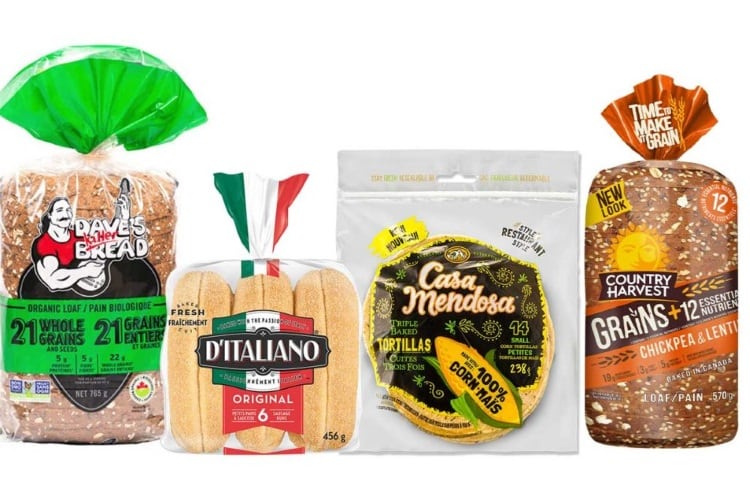Founders Nick and Elyse Oleksak of Bantam Bagels turned their ‘fifteen minutes of fame’ on Shark Tank in 2015 into a multi-billion dollar opportunity. While the couple described their appearance on the popular TV programme as “the scariest moment in Bantam history” – especially as its online sales platform crashed from a traffic surge after the episode aired – it led to a $34m sale to T. Marzetti Co., a subsidiary of Lancaster, in 2018.
At the time, Lancaster’s president and CEO David Ciesinski described the New York City-based Bantam – which was posting around $20m in annual sales – as “a fast-emerging company that provides us with an entry into the large and growing frozen breakfast category.”
Founded in 2013 as a retail shop, Bantam Bagels Bantam Bagels is best known for its frozen bite-sized stuffed bagels and mini stuffed pancakes, garnering praise from celebs like Oprah and actor Steve Harvey.
The company had also cemented a relationship with Starbucks (listed in more than 9,000 stores across the US), another positive that Ciesinski believed positioned it for future expansion.
Result of COVID
Four years later, however, in a statement accompanying its fiscal year third-quarter financial results, Lancaster said Bantam has underperformed and has no foreseeable path to profitability.
The Ohio-based food producer partly attributed a hammered third quarter bottom line to a noncash restructuring and impairment charge of $22.7m for the Bantam Bagels business.
For the third quarter ended 31 March, Lancaster sustained a loss of -$4.48m, compared to +$28.9m (equal to $1.05 per share) in the same period a year ago. For the nine months ended 31 December, Lancaster’s net income was $60.54m ($2.20 per share), down 45% from $110.61m ($4.02 per share).
Sales for both periods, meanwhile, continued to trend upwards. Third quarter net sales climbed 12.9% to $403.49m, while full year sales rose 13% to $1.22bn from $1.08bn a year earlier.
In a call with analysts, Ciesinski, said, “Early during the pandemic, the foodservice industry was severely impacted by store closures and traffic declines.
“During this period, numerous restaurant operators made choices to streamline their menus for operating efficiencies. And during this period, Bantam Bagels was discontinued at their largest customer for precisely this reason. This discontinuation and the sustained impact of the pandemic changed the economics of the business.
“Despite investments to support the growth of Bantam Bagels in the retail segment and our best efforts to replace the loss of the major customer in the foodservice segment, we were unable to identify a credible pathway to profitability for the business.
“Consequently, we made the prudent but difficult decision to exit the business.”
Further challenges
Beyond Bantam, Ciesinkski said the company was battling with the tranche of challenges that are attacking all sectors of the business environment today.
“We continued to experience unprecedented inflation for raw materials and packaging that accelerated during the period and reflects an increase of nearly 30% versus the prior-year quarter. Freight costs also increased approximately 30% compared to last year, pacing well ahead of our previous expectations.”
He added, “Our financial results were also adversely impacted by higher labour costs and supply chain disruptions attributed to Covid-related labour shortages, volatility in customer demand, and some severe weather events.”
To address the rising costs, Lancaster has undertaken ‘a focused list of discrete actions’, including the construction of a sauce capacity expansion project at one of its facilities in Columbus, the opening of a new warehouse and increasing the use of its internal manufacturing facilities where its capacity situation allows. The other major decision was to offload Bantam.
Lancaster said it is currently pursuing the sale of the equipment used to produce Bantam Bagels and expects to have fully exited the business by the end of June.





